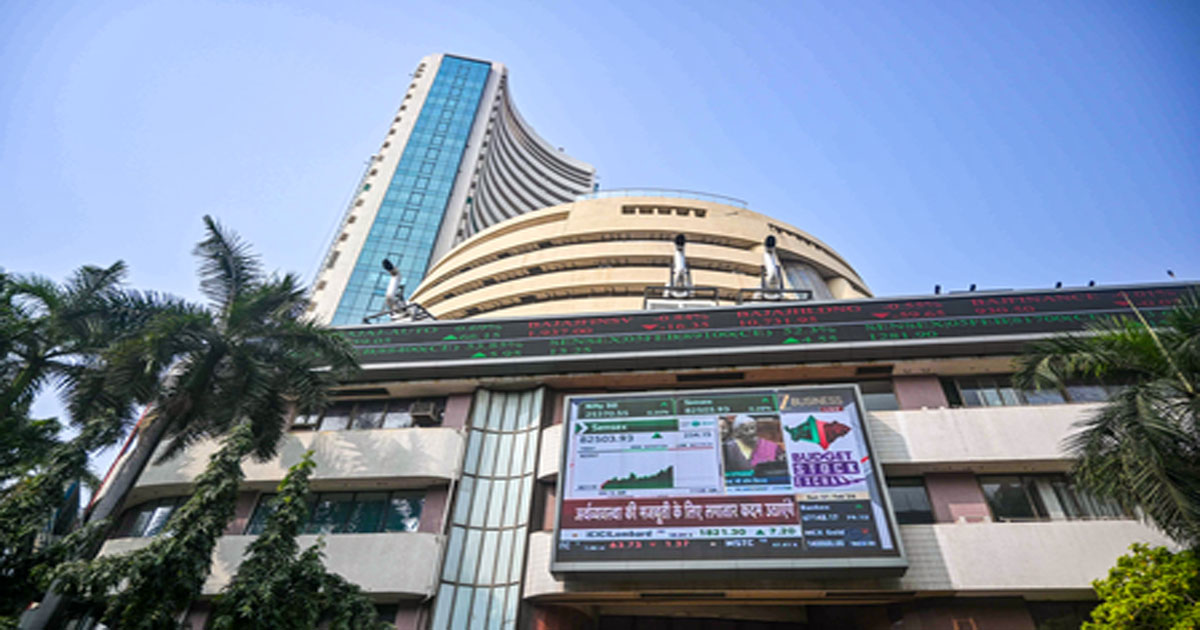Business
Tesla loses $125 bn in market value as Musk buys Twitter

With Elon Musk acquiring Twitter for $44 billion, the stock of his electric car company Tesla tanked, and at least $125 billion were wiped out from its market value over some obvious risks.
According to media reports, Musk could face conflict with China over free speech, which is a key market for Tesla as it produces vehicles at the Shanghai Gigafactory.
There is another risk that “Musk could become distracted by his latest acquisition,” reports NPR.
Tesla shares sank 12.2 per cent after the Twitter acquisition news broke.
The world’s richest man has a net worth of $257 billion but two-thirds of his wealth is in Tesla stock.
“If Musk does offload some of those holdings, it could drive Tesla’s share price down further,” the report said late on Tuesday.
The company warned investors about the same in its latest annual report filed with the US Securities and Exchange Commission.
“If Elon Musk were forced to sell shares of our common stock that he has pledged to secure certain personal loan obligations, such shares could cause our stock price to decline,” the company said.
Another worry for Musk is Twitter itself. Advertisers are having nightmares as free speech can kill their prospects on the platform as their brand’s name may appear alongside hate speech and abusive or dangerous content without moderation.
If Twitter under Musk “tweaks or revamps its moderation policies, reinstate banned users, or allows hate speech and other dangerous and abusive content to return, then advertisers may leave”, according to TechCrunch.
Business
Mumbai Infra: BMC Plans ₹220-Crore Flyover Between Mahim & Bandra East To Ease Congestion On WEH

Mumbai: In a bid to ease traffic congestion along a crucial stretch of the Western Express Highway (WEH), the Brihanmumbai Municipal Corporation (BMC) has revived plans to construct a flyover connecting Mahim and Bandra (East). The civic body has once again invited tenders for the long-pending project after earlier attempts failed to attract bidders.
The proposed flyover will link Machhimar Colony on Senapati Bapat Marg in Mahim to Bandra (East), providing an alternative route for motorists who currently face severe traffic snarls on the western express highway. The congestion typically begins at Mithi Chowk in Bandra (East) and extends up to Dadar, significantly slowing down traffic on the WEH.
The project is estimated to cost approximately Rs. 220.17 crore. The flyover will stretch for over one kilometre and is expected to ease pressure on existing routes between Mahim and Bandra (East), an area that already includes the Chunabhatti–BKC flyover and the old Kalanagar flyover.
This is not the first time the BMC has attempted to push the project forward. The initial tender, floated in 2022, was withdrawn due to technical issues. A second tender issued in July 2023 failed to receive any bids and eventually lapsed. The bridge department has now reissued the tender, expressing hope that contractors will come forward this time.
The project involves crossing areas near Mithi Chowk, which will require clearances from the Coastal Regulation Zone (CRZ) authorities and the Forest Department. The responsibility of securing these permissions will lie with the appointed contractor.
Once completed, the flyover is expected to streamline traffic flow between Mahim and Bandra (East) and provide relief to commuters using one of the city’s busiest arterial corridors.
Business
Bharat Forge’s Q3 profit falls 17 pc, Rs 2 interim dividend announced

Mumbai, Feb 12: Bharat Forge on Thursday reported nearly 17 per cent year-on-year decline in its standalone net profit for the quarter ended December 2026 (Q3 FY26).
On a standalone basis, the company posted a net profit of Rs 288 crore lower than Rs 346 crore reported in the same quarter last financial year (Q3 FY25), according to its stock exchange filing.
Standalone revenue from operations saw a marginal dip of 0.6 per cent to Rs 2,083.7 crore in Q3 FY26.
On a consolidated basis, the performance was stronger. Revenue rose 25 per cent year-on-year to Rs 4,343 crore, compared with Rs 3,476 crore in the year-ago period.
Net profit increased 28.2 per cent to Rs 273 crore from Rs 213 crore in the corresponding quarter last financial year.
The company said the quarterly numbers included a one-time cost of Rs 55.7 crore, which had an impact on margins.
Earnings before interest, tax, depreciation and amortisation (EBITDA) grew 20 per cent to Rs 750 crore from Rs 624 crore a year ago.
However, EBITDA margin moderated to 17.3 per cent from 18 per cent in the same quarter last financial year.
The Board of Directors also declared an interim dividend of Rs 2 per equity share of face value Rs 2 each, which translates to a 100 per cent payout on the face value.
The dividend will be paid on or before March 12, 2026, and the record date for determining eligible shareholders has been fixed as February 18, 2026.
Commenting on the performance, B. N. Kalyani, Chairman and Managing Director of Bharat Forge, said the results continued to be impacted by de-stocking in the North American commercial vehicle market.
He added that strong growth in the domestic automotive business and execution of the defence order book helped support the overall performance.
On a sequential basis, standalone revenue rose 7 per cent quarter-on-quarter to Rs 2,084 crore.
EBITDA increased 4.6 per cent to Rs 569 crore, while margins stood at 27.3 per cent. Export revenue declined 3 per cent on a sequential basis, with auto exports falling 13 per cent, even as industrial exports grew 11 per cent.
Business
Sensex, Nifty open in red; IT index dips 3.58 pc

Mumbai, Feb 12: The Indian equity markets opened lower early on Thursday weighed down by IT stocks.
As of 9.25 am, Sensex lost 397 points, or 0.47 per cent, to reach 83,836, and Nifty lost 111 points, or 0.43 per cent, to settle at 25,842.
Main broad-cap indices posted stronger losses than benchmark indices, as the Nifty Midcap 100 declined 0.76 per cent, and the Nifty Smallcap 100 dipped 0.88 per cent.
All sectoral indices traded in the red except FMCG, private banks as well as oil and gas. Most notable losers were Nifty IT down 3.58 per cent, realty down 1.11 per cent and media down 1.04 per cent.
Immediate support for Nifty is placed at 25,800-25,850 zone, while resistance is anchored at 26,050-26,100 zone, market watchers said.
Analysts said that the latest US jobs data indicating addition of 1.3 lakh jobs last month and unemployment falling to 4.3 per cent points weakened hopes of rate cuts by the Fed in the near-term.
In India, market watchers said that the rate cutting cycle is over since growth is good and inflation is expected to inch back to the RBI’s long-term target by the end of FY27.
In Asian markets, China’s Shanghai index added 0.12, and Shenzhen gained 0.81 per cent, Japan’s Nikkei gained 0.1 per cent, and Hong Kong’s Hang Seng Index eased 0.97 per cent. South Korea’s Kospi gained 2.74 per cent.
The US markets ended largely in the red overnight as Nasdaq eased 0.16 per cent. The S&P 500 traded flat, and the Dow Jones lost 0.13 per cent.
On February 11, foreign institutional investors (FIIs) net bought equities worth Rs 944 crore, while domestic institutional investors (DIIs) were net sellers of equities worth Rs 125 crore.
Indian equities corrected in January amid global volatility and FII outflows; however, the medium-term outlook remains constructive, according to analysts.
-

 Crime4 years ago
Crime4 years agoClass 10 student jumps to death in Jaipur
-

 Maharashtra1 year ago
Maharashtra1 year agoMumbai Local Train Update: Central Railway’s New Timetable Comes Into Effect; Check Full List Of Revised Timings & Stations
-

 Maharashtra1 year ago
Maharashtra1 year agoMumbai To Go Toll-Free Tonight! Maharashtra Govt Announces Complete Toll Waiver For Light Motor Vehicles At All 5 Entry Points Of City
-

 Maharashtra1 year ago
Maharashtra1 year agoFalse photo of Imtiaz Jaleel’s rally, exposing the fooling conspiracy
-

 National News1 year ago
National News1 year agoMinistry of Railways rolls out Special Drive 4.0 with focus on digitisation, cleanliness, inclusiveness and grievance redressal
-

 Maharashtra1 year ago
Maharashtra1 year agoMaharashtra Elections 2024: Mumbai Metro & BEST Services Extended Till Midnight On Voting Day
-

 National News1 year ago
National News1 year agoJ&K: 4 Jawans Killed, 28 Injured After Bus Carrying BSF Personnel For Poll Duty Falls Into Gorge In Budgam; Terrifying Visuals Surface
-

 Crime1 year ago
Crime1 year agoBaba Siddique Murder: Mumbai Police Unable To Get Lawrence Bishnoi Custody Due To Home Ministry Order, Says Report












